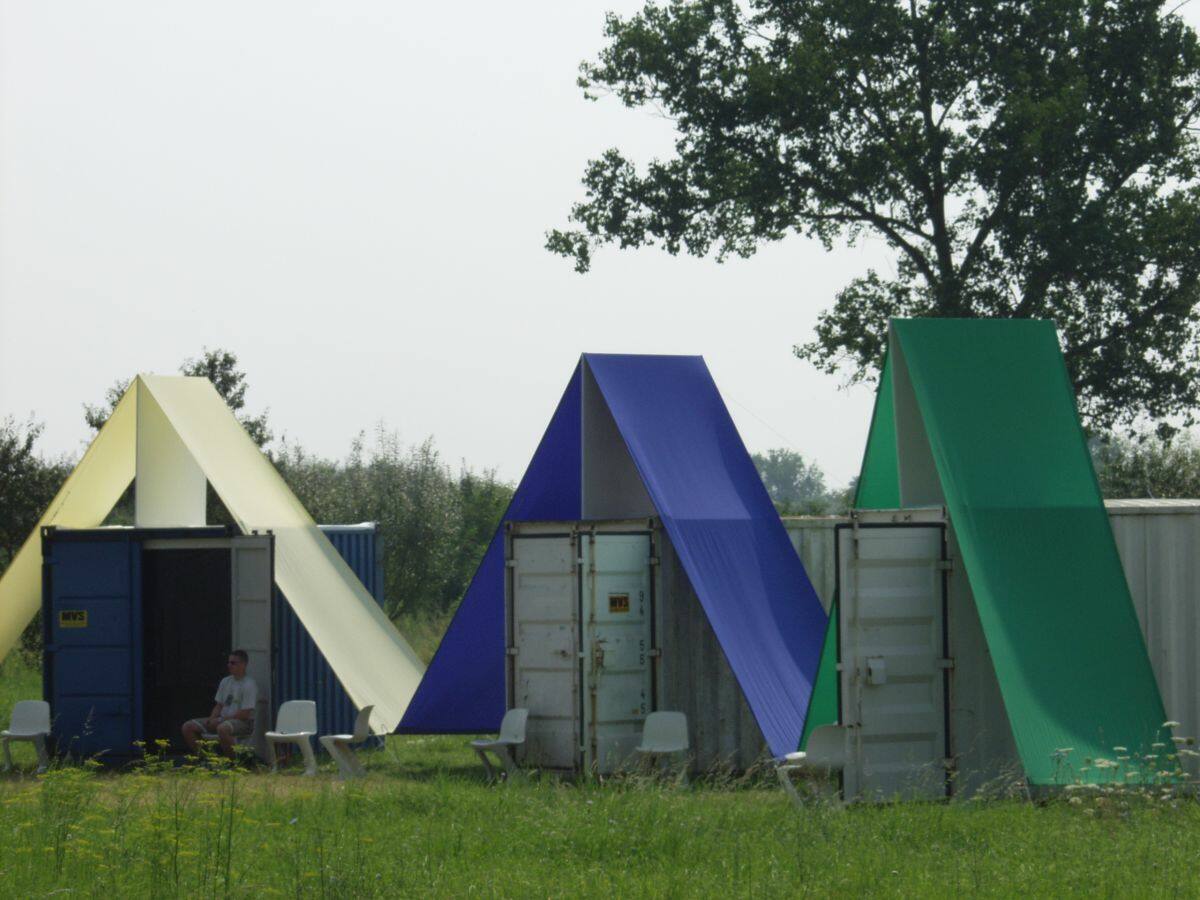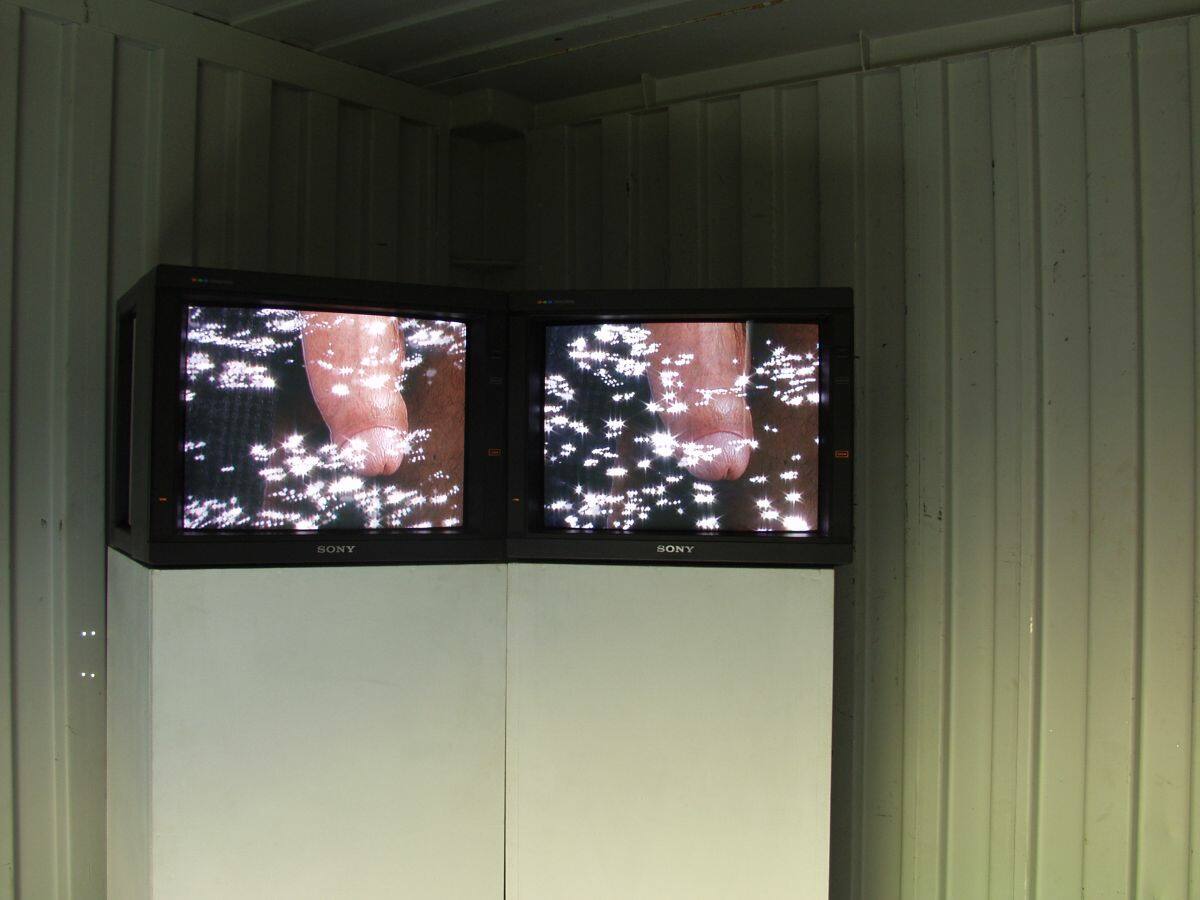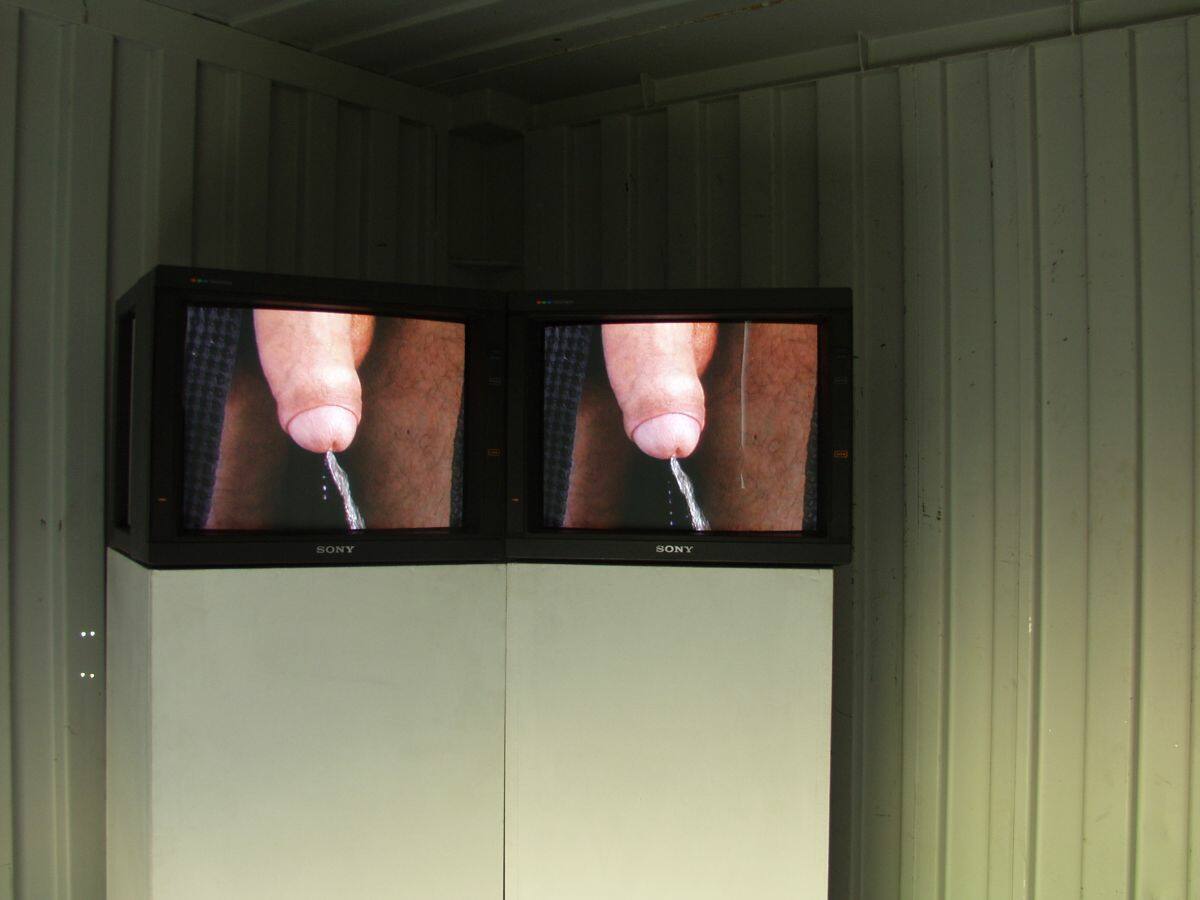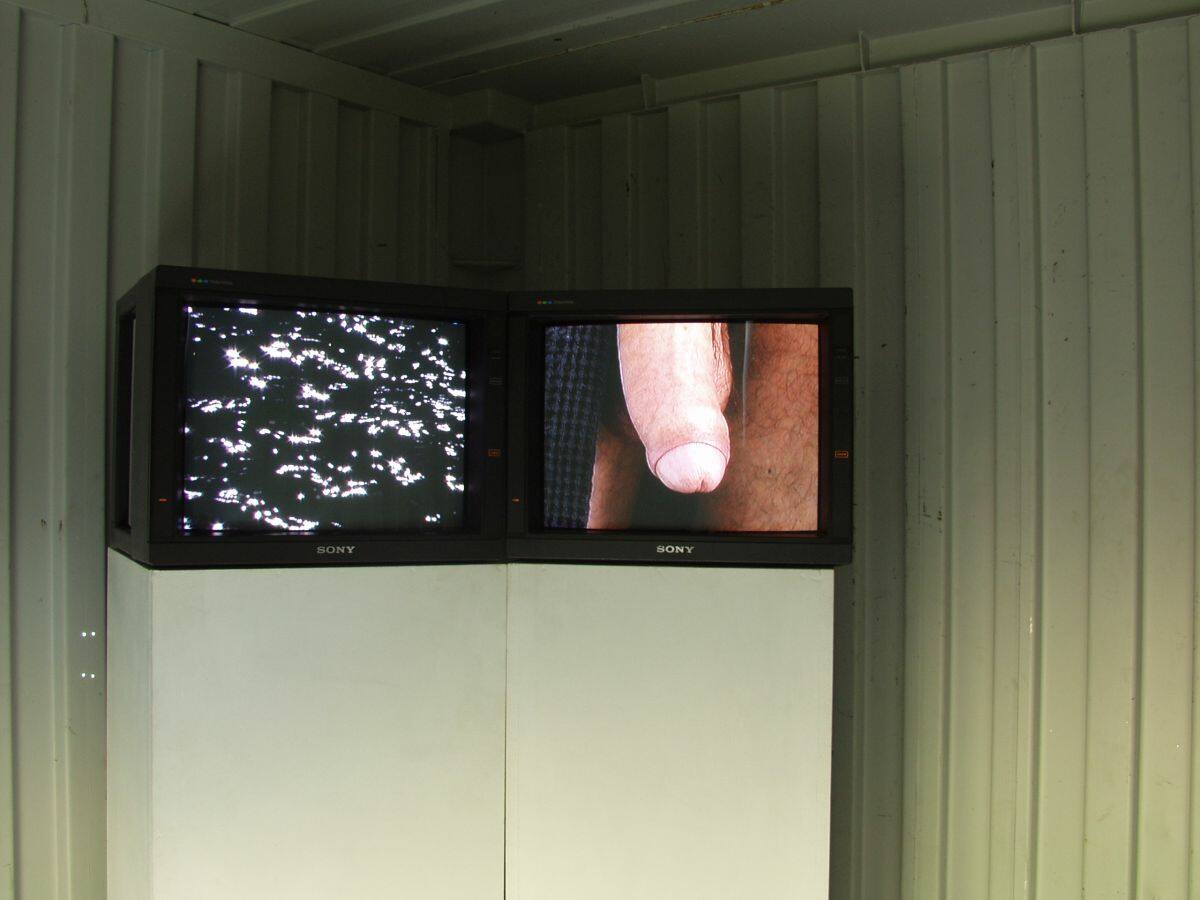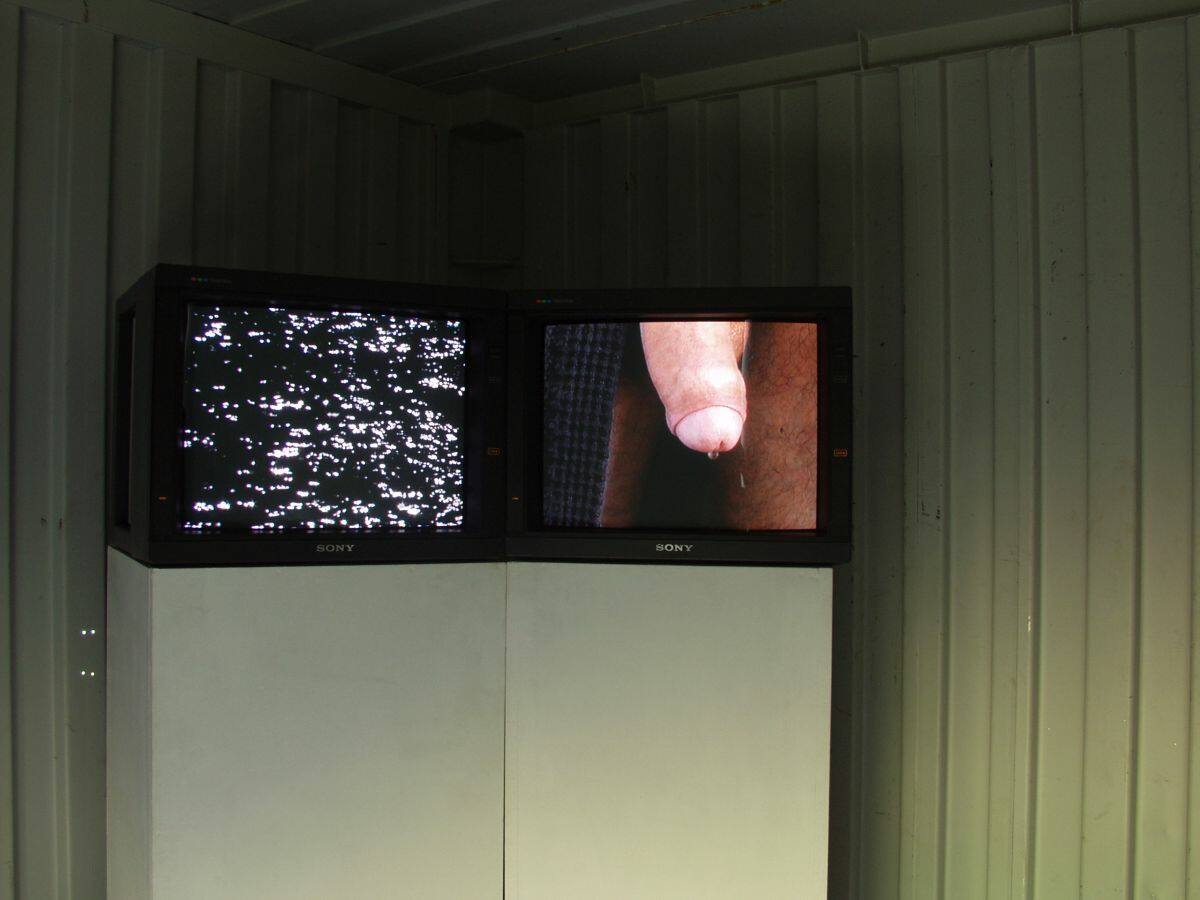Übergordnete Werke und Veranstaltungen
Evening
Personen
Media
Does this ship sail nightly?
Utopia and the summer of 1973
I talked this afternoon, with a friend visiting from Poland, about the Festival of Socialist Youth in the GDR in 1973. She, as people will, took off in her own direction. This whole “experiment” she stated, the “socialist experiment” started after World War II, as an arrangement between postwar governments. Who took part in the experiment was arbitrary. The division of Europe was made (as only politicians can) as if by a ruler, with no concern for the countries, the cultures or the people. And this eastern part was ‘sold’ to the Soviets, as she put it, to pay for 40 years of peace in Western Europe. Of course in this kind of experiment, the residents, the “lab rabbits” were not asked - one gave one’s life to take part, without consent. You can see this festival, she finally explained, as a kind of propoganda, both for the outside world, as well as to mollify the restless youth of the East. It was easy, and perhaps still is, for certain Western activists’ desires to be projected onto this festival, as well as these countries, without sufficient knowledge of what was in fact occurring there, which she described as ugly and bleak. I am assuming that she’s talking more about her own experiences in 1973 in Poland. Poland being closer to East Germany than the United States, I found myself listening to her, and here retelling what she said although she wasn’t in East Germany and did not attend the festival. I can’t talk about this festival myself; I was far away at the time, living a very different life. If I try to circle closer - to find some way to narrow into an experience I personally can relate to, I finally rest on two things; the date, the summer of 1973, and the word “Utopia”.
I was alive in 1973. I was a long-haired teenager, in some ways younger than I acted, in other ways older than I am now. Did my thoughts drift toward utopia? The word utopia rests on the table. I pick it up. Examine it from several angles. Cut myself on a jagged edge. Ouch! It is the summer of 1973.
I would like to tell a coherent story, but I (worry that I) have no real story to tell. Perhaps my mind blocks out the specifics of the summer of 1973, when I was fifteen. Wanting (which is an insufficient word to describe how I was feeling) to get away from my family, I painstakingly saved up money from an assortment of low paying jobs - housecleaning, waitressing, babysitting - to pay for a six-week bicycle trip to Canada. It was a summer of experimenting with freedom and sex and the surprise of seeing myself for the first time as separate and outside of the family structure. I found myself different, but not different enough. One image sticks in my mind: it is late at night. I am lying on a beach on Prince Edwards Island, after throwing up from drinking too much. My head is in the lap of the group leader, she is slowly stroking my hair. Still nauseous, I look up at the full moon and then my eyes move longingly to a boat moving elegantly on the horizon. Where was it going to? Did it sail every night?
There was nothing utopian about this messy, ambivalent and searching summer. Politics, equality, solidarity or friendship on a larger scale than that of a small disfunctional group, do not enter into my memories, although this group of flannel-shirted, all white, all middle to upper middle class kids must certainly have had heated self-righteous discussions on the state of the world.
Perhaps this was the first summer I realized that even if one leaves one’s present conditions, one isn’t born anew; shiny, naked and free. I wouldn’t go so far as to say I experienced a shattering of a utopian dream during those six weeks, I never would have thought of it that way. But it was my first summer of not only experiencing the desire for life to be otherwise, but taking an active move to do something about it. Was this desire fulfilled by physically getting away? No. Getting away requires much more than a physical movement.
And so the above, finally can be classified as a sort of story, but I am not satisfied. My personal experiences don’t take me very far. My mind strays elsewhere. My mind again grabs for this word utopia and searches elsewhere. The first use of the word utopia, according to my Oxford English Dictionary anyway, was in 1516 by Sir Thomas Moore, referring to an imaginary island which enjoys a perfect social, legal and political system. From this I set aside the words imaginary, perfect and island. Small pebbles put on the sand of my remembered beach. For Moore then, a Utopia hinges on the leap, the imagining that things could be otherwise. But the otherwise is not just any otherwise. It is perfect. And separate. A place that is selfcontained, surrounded by something else, something other.
Victor Hugo offers up an interesting, though less happy view of Utopian and perfection: “Our life dreams the Utopia. Our death achieves the Ideal.” Is (a search for) perfection always tied up with a longing for death? I think to the unspoken Utopias of religion, as well as their obsessions with opposing absolutes: good and evil. Heaven and hell. I think how well-tailored, how effective absolutes in general are to manipulate others, to make them, either through desire or fear... believe. The fear of, the attraction to this place of unexperienced perfection and death. And then I find this quote by Emma Goldman: “Every daring attempt to make a great change in existing conditions, every lofty vision of new possibilities for the human race, has been labeled Utopian.”
She implies that labelling something ”Utopian” is equivalent to writing it off. A way to discredit and diffuse a desire for change, difference and possibility. More specific historically, an easy way for the status quo to write off uncomfortable ideas of social change. The word becoming an unspoken equivalent to impossible, unreacheable and naïve.
I most often think in the conditional, my attractions run more to the muddy then the absolute, which gets me into trouble both with organized political and religious groups. It does not in- crease my direct effectiveness politically either, which is why I think I am most comfortable in making what can ambivalently be called art. This is not to say that I don’t believe in, or don’t want to fight for change – I do believe in unbelieveable, unthinkable change. Because I have seen, have lived through such change already. It exists. It has happened. In small and huge ways that touch my life directly and often indirectly, through the cushion of American...
So, I continue searching, perhaps goofing off. I have no access to East Germany in the summer of 1973, so I try once again to move closer to my country, something of my experience and home. I find a poem in a magazine. It is not about a perfect social, legal or political system, it is about rhythm and blues. A kind of music I listened to a lot in 1973. The poem is called The Encyclopedia of Rhythm and Blues and it is by Anthony Walton. The last few lines go like this: as if a song had wings extended into flight and feathers of shelter – as if true love and its fraternal twin, the blues, possessed equally the powers of devotion and redemption, as if the one true heaven were standing around the corner, laughing drunk, and locked with lust and abandon into the ever-loving arms of the mortal world.
This is not a political poem, and perhaps I should be faulted for not dealing with the rest of Sir Thomas Moore’s definition of Utopia, which refers to enjoying a perfect social, legal and - political system. But this didn’t really enter into my youthful summer of 1973, which anyway was marked by infighting, cliques and petty jealousies as well as wild celebratory nights full of confidences and intimacies. The overwhelming feeling that we want to do...something. That we can – we can at least try. Moore’s island is just plain not the image that I have in my brain right now, maybe never. Right now it is this picture from the poem of “the one true heaven... laughing drunk.” I think to this “one true heaven” and certainly the combination of words relate somehow to Moore’s island. But instead of being separate and perfect, it can be found cohorting messily, like a friendly drunk who can still stand and fuck and tell a good joke, with the mortal world - my world. Lusting and loved.
